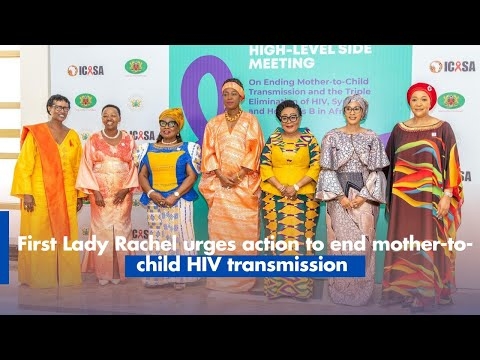In recent years, emerging and remerging infectious diseases such as Avian Flu, Middle East Respiratory Syndrome, Ebola and, most recently, Covid-19 have caused a great burden worldwide. Covid-19 resulted in an estimated 7 million deaths.
These alongside a rise in drug resistance and the intentional engineering of microbes and with the globalisation of travel, food and medicines, there is clear evidence that global health risks are increasing and that diseases can now spread as fast as an aeroplane.
The impact of SARS COV-2 continues to be felt. People who have been infected with the virus that causes Covid-19 can experience long-term effects from the infection and this has been referred to as long Covid. The condition can include a wide range of ongoing health problems lasting weeks, months and possibly years.
Although not all is known about long Covid, people likely to develop it include those who have experienced more severe illness, those with underlying health conditions prior to Covid infection and people who did not get Covid-19 vaccines.
An area of further research is to determine the number of people who have been affected by post-Covid conditions and how often people who are infected develop these conditions afterwards.
Another condition that was recently reported across the globe is severe hepatitis of unknown origin in children. Despite conspiracy theories attributing the cases to Covid-19 vaccines, this has been ruled out since most of the children are too young to get vaccinated.
SARS-COV2 infection could be the root cause of this mysterious hepatitis in children but this has not been confirmed. It is possible that affected children may have had mild or asymptomatic Covid that went unnoticed. Most frequent causes of acute hepatitis in children, including hepatitis viruses A-E, have been ruled out.
WHO last month reported that 70 percent of the children have tested positive for adenoviruses, which are known to cause respiratory diseases. Could there be a mutation among these viruses to cause the disease process in the liver? Could these viruses have rebounded following long periods of enhanced sanitation due to Covid control rules and regulations? This calls for urgent research in the area.
The recent multi-country monkeypox outbreak in non-endemic countries and with cases not reporting history of travel to endemic countries is equally of concern. The priority now for these three diseases is to determine the cause of cases and define control measures.
Even as we wait for investigations into these outbreaks, the global community should bring into sharp focus how we are dealing with the broad agenda of Global Health Security. According to WHO, the goal of Global Health Security is to prevent, protect against and provide a public health response to the international spread of disease in ways that are commensurate with and restricted to public health risks and which avoid unnecessary interference to international travel.
None of the recent outbreaks was predicted and with the trends, we should anticipate an increase in frequency and scale of impact. It is also noteworthy that most of the emerging diseases are zoonotic in nature, affecting both humans and animals, and that in a short span of 20 years, three new types of coronaviruses have emerged (SARS, MERS and Covid).
Some factors that will contribute to increased risks of new diseases are limited disease surveillance systems in most developing countries, reluctance of countries to share outbreak information, weakness in the enforcement of public health laws, limited border public health measures and intentional or accidental release of biological agents.
As the global community comes together to enhance the Global Health Security agenda, these vulnerabilities must be addressed. In addition, core roles of the ministries of health should focus on planning, disease tracking, communication, issuing of isolation and quarantine orders, conducting vaccinations and the provision of antiviral medications.
More investment is required to implement new strategies and technologies to find and stop outbreaks. Key to this is strengthening of laboratories system that requires the automation of sample collection, transportation, testing and relaying of information so that results are quickly shared.
Another key area to address is stigma, misinformation and disinformation. Recent experience shows that in populations where these are not overcome by education, beliefs in superstitions still persist. There is also distrust of outsiders as some people peddle lies that they have come to make money from these pandemics. Countries must prioritise the implementation of social behaviour change communication campaigns to address myths and misconceptions.
The one lesson we continue to learn is that in the current age, no one is safe until all are safe. Critical time for global solidarity indeed.
Chairperson, Covid-19 taskforce
“WATCH: The latest videos from the Star”












